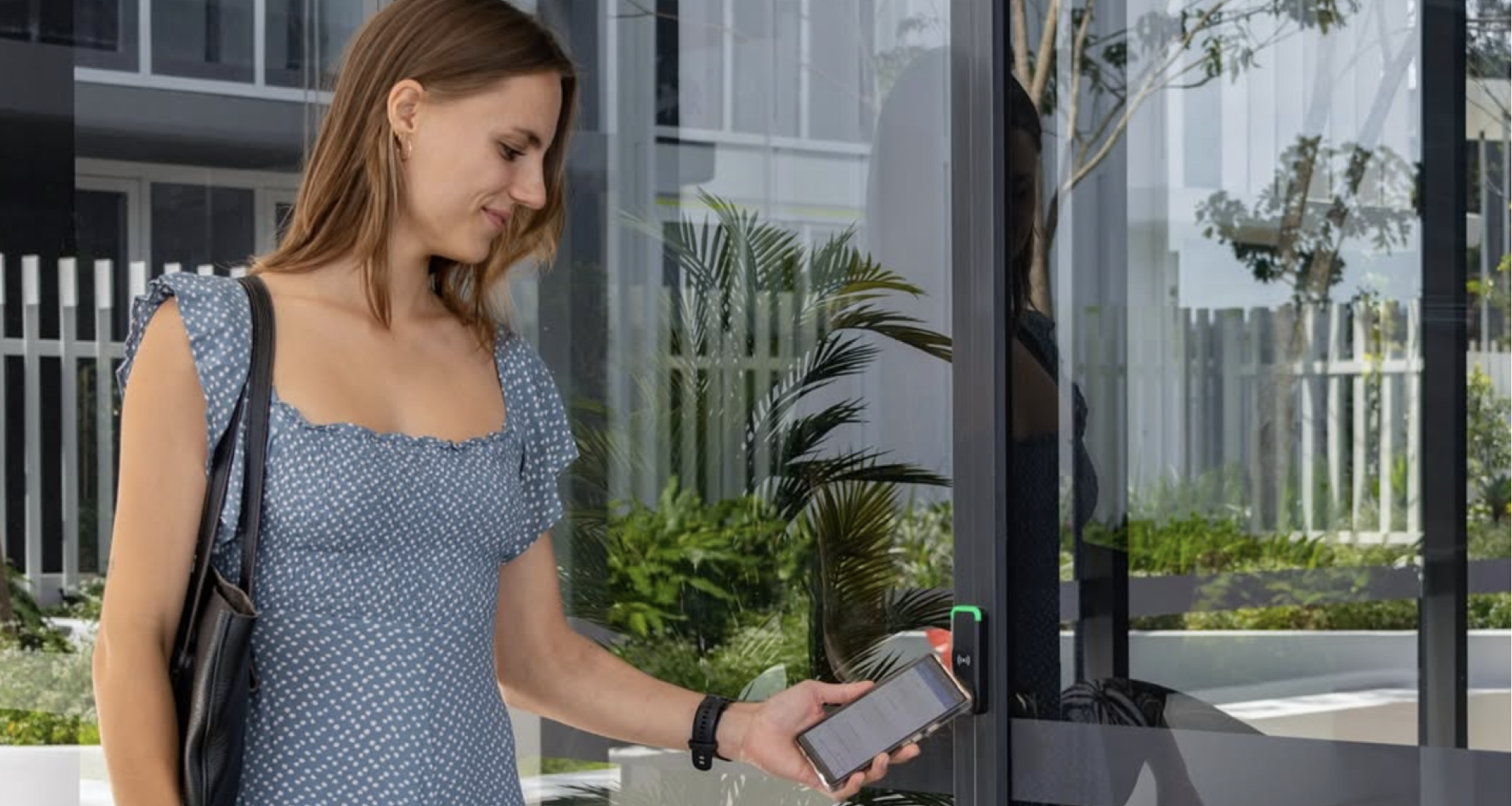From Gen Z to Baby Boomers, each generation has had a different relationship with technology, but one thing is certain: digitalisation is reshaping how travellers discover and experience hospitality services. As someone from the tail end of Gen Z, I’ve grown up surrounded by constant innovation, and I realise that staying on top of these changes can feel overwhelming.
In the travel industry, understanding how these shifts impact consumer behaviour is key. To make it easier, this breakdown highlights key digital transformation trends from ITB Berlin and offers actionable insights to apply in your business.
Social media is driving the future of travel inspiration
Social media is the platform for travel inspiration and planning, especially for younger travellers. Recent research by Phocuswright shows that social media usage is of 75% for 18-34-year-olds and 63% for 34-54-year-olds.
Trends
- Facebook and Instagram are still huge in Europe, but platforms like YouTube and Reddit are growing rapidly, particularly with Gen Z.
- In the U.S., YouTube is now as influential as Facebook and Instagram for travel research.
"More and more travellers are turning to social media, particularly as digital natives become a larger part of our traveling population. For brands and destinations, that creates an incredible opportunity to use these platforms for marketing. But consumers are smart, and so brands have to be smarter," Mitra Sorrells, senior vice president of content at Phocuswright.
What you can do
Visual storytelling is crucial: Use high-quality photos and videos to show off your property’s unique experiences. Phocuswright’s report: Travel Forward: Data, Insights and Trends for 2025, highlighted some of the best-performing format types to drive conversion:

Tap into video: YouTube is a powerful tool for travel inspiration and direct bookings.
Be discoverable: People are always searching for travel tips and reviews. Be part of that conversation by engaging on social media platforms, responding to comments, and using relevant hashtags to reach potential guests.
Keep it authentic: Consumers want to connect with real, genuine experiences. Use user-generated content (UGC) from past guests to build trust and credibility. Encourage guests to share their experiences through reviews and posts.
Don’t put all your eggs in one basket: Relying on just one social media platform can limit your reach. Diversify your efforts across multiple platforms, so you’re not overly dependent on one for engagement.
Test, learn, and keep consistent: Experiment with different formats and see what resonates best with your audience.
As social media continues to shape how travellers discover destinations, video content is playing an increasingly important role.
How travel brands can win with YouTube
YouTube isn’t just the second biggest search engine in the world—it’s the biggest streaming platform too. Roya Zeitoune, YouTube’s Head of Culture & Trends for EMEA, shared how internet culture is shaping travel. Here are a few things to think about when considering video content:
Myth: The internet has killed our sense of community
While some say the internet isolates us, the reality is that platforms like YouTube have expanded our sense of community. Whether it’s travel, food, or hobbies, people are connecting over shared passions.
Key stats shared by YouTube’s Head of Culture & Trends, Roya Zeitoune:
- 73% of fans (14-44) come to YouTube to engage with content around their interests, which is 20% higher than the next higher platform.
- YouTube is a powerful discovery platform, with 54% of people (18-44) preferring to watch creators explain something before trying it themselves.
- There’s also a growing trend for seeing familiar places from fresh perspectives.

Myth: High production value is expected from everyone
High-quality content is still popular, but there’s a shift toward raw, authentic content (or maybe a return to, if you were on YouTube 20 years ago?). Turns out, polished perfection isn’t the only way to engage people — real, unpolished videos have their place too.
Key stats
- Creators thrive by filming on their phones and keeping it real.
- Short-form content on TikTok and Instagram has made it easier for anyone to create.
Takeaway: Authenticity over perfection. People want to see genuine moments, not just polished ads.
Myth: People have short attention spans
Everyone says we have short attention spans, but long-form content (like video essays and podcasts) is thriving, especially with younger audiences. Watch time for long-form content among people under 25 has grown by almost 10% year-on-year.
Takeaway: If your content is engaging enough, people will stick around: long-form content isn’t dead.
AI is changing how guests plan and experience travel
AI is becoming a go-to travel companion, helping guests discover, plan, and book with ease. Here are the key trends to watch.
Trends
- Travel is a top use case for platforms like ChatGPT and Perplexity. While those aged 18-34 use generative AI most often, it’s travellers aged 35-54 who are the most consistent users for travel.
- Phocuswright’s Travel Forward report shows just how much AI is shaping travel decisions, with 65% of travellers who used GenAI did so to find destination ideas, while 41-50% used it to discover activities and compare options.
- AI is expected to move beyond content marketing into areas like supply chain optimisation in the next five years.
- ‘Generative Engine Optimisation’ (GEO) is a new concept that’s emerging, optimising your content so it’s not just search engine-friendly but also AI-friendly.
What you can do
Think GEO-friendly: As AI tools shape how people search, ensure your content is clear, contextual, and relevant. This makes it easier for AI to prioritise your content in travel planning and personalised recommendations.
Keep an eye on AI-powered distribution: AI is reshaping pricing and availability with booking platforms and Online Travel Agencies (OTAs). Use direct booking strategies that leverage AI to offer real-time, tailored recommendations to your guests, like AI-powered Chatbots. If you are interested in introducing a powerful AI chatbot to streamline your operations, RMS API offers a simple way to connect with Myam.ai.
Invest in tools that keep your data organised: Your property’s data is a goldmine of insights into business performance and guest preferences. AI works best when it has clean, organised data to work with. RMS centralises all your data, making it easier to manage everything from guest info to bookings and pricing. With well-organised data, AI can help you optimise your operations and offer a more personalised experience for your guests, no magic required!
AI lovers, this one’s for you, In-Destination Experience: Explore AI-driven travel guides, AR/VR experiences, and AI-enhanced guest services. Look into AI-powered translation tools to break language barriers for international guests.
Don’t panic: AI is not a box you need to tick for the sake of it, it’s here to solve a need for your business. You can implement it with free available tools,
What this means for your business
Experiment and learn. Digital transformation is not about chasing every trend but using the right tools to enhance the guest experience.
Travellers are discovering, planning and booking trips in new ways. Social media and AI are shaping how people search for travel inspiration, while video content sparks inspiration. Staying ahead does not mean overhauling your strategy overnight. It means staying curious, testing ideas and adapting where it makes sense.
For now, start small.
Refresh your social media content, experiment with video or explore AI-driven guest engagement. The key is to stay adaptable, meet travellers where they are and build digital experiences that add real value. Hospitality thrives on connection. The brands that succeed will be those that use technology to enhance, not replace, human interactions.

By Maud Bruyere
Customer Advocacy Manager
6 min read







